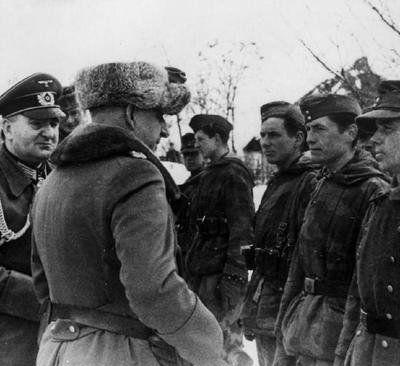Human wars always pay attention to the stability of the scene, because if a rout is lost, it is likely that the army will be defeated, and there is no hope of overturning. In the Soviet-German War of World War II, Germany faced such a dilemma. When the Sixth Army was completely destroyed at Stalingrad, the Germans had to retreat in all directions, while the Soviets took advantage of the situation to attack, and in the eyes of some Soviets, the war was about to be won.

It was the early spring of 1943, Stalingrad was still in the middle of a snowy landscape, and the news of Paulus's surrender made the entire German army shudder. The loss of more than a million German elites made the German hope of victory very slim. Naturally, the Soviet army did not spare the German army at this time, and the million troops of the Voronezh Front were pushed to Kharkov in half a month and reoccupied the important town.
At this time, the Soviet army was only one step away from Manstein's headquarters, but Manstein still had no intention of retreating. Manstein was thus victorious, and he knew clearly that although the Soviet army was menacing, it was only a group of isolated enemies, and the two wings could be occupied by the German army at any time, and then became a dumpling stuffing. The principle that the arrogant army must be defeated has made Manstein decide to launch a counterattack to give the Soviet army a head-on attack.
Manstein decided to eat the Southwestern Front before returning to Fight Kharkiv. The German counterattack was not smooth at first, failing to encircle the Southwestern Front, but voronezh's front was already in a German trap. At this time the Soviet supply line was almost cut off, and although Stalin mobilized three army groups to support Kharkov, the Germans quickly took the city.
Before Soviet support arrived, the Germans launched another onslaught against the Soviets, driving them back to the other side of the North Donets River. The Battle of Kharkov is regarded as another masterpiece of Manstein after the Battle of Sevastopol. This helped the Germans survive on the Eastern Front for two years, and since then the Germans have never won a single victory on the Eastern Front. What do you think?